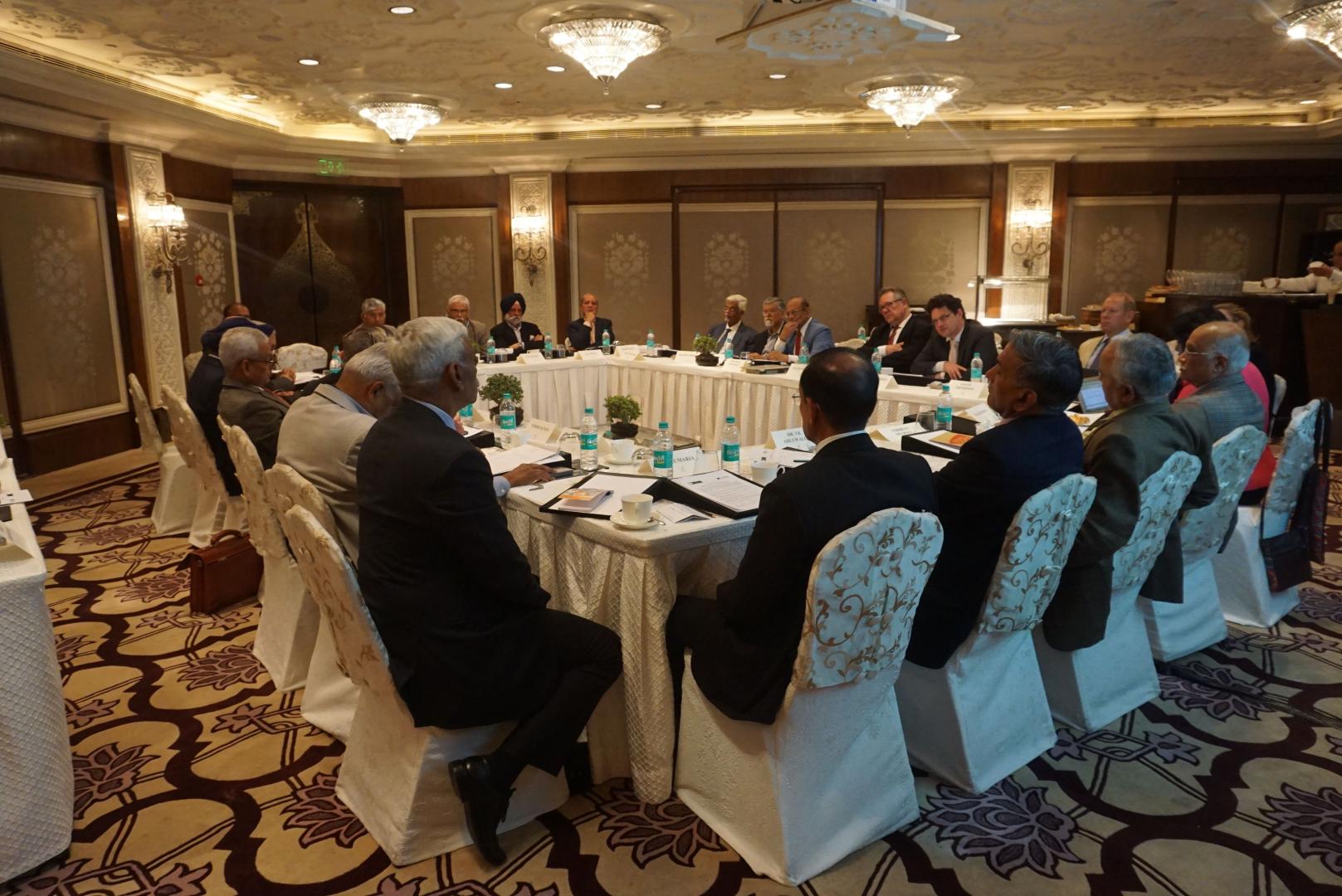Countering terrorism – Challenges and Options
The meeting was kicked-off with an explanation that the event presented an opportunity to address the current challenges within the broader framework of a global recognition of the threat posed by terrorism in its various hues. Accordingly, it was about time that the international community acted as a whole and potentially revised the convention on terrorism which India had proposed to the UN in 1996. In the inaugural address, it was underlined that the purpose of the meeting would be to delve into the possibilities of action for India on how to deal with terrorism as well as look at counter terrorism and insurgency mechanisms.
The fact that it was a local suicide bomber who was to be blamed for the Pulwama attack was described as a wake-up call for India. Furthermore, the role of the media needed to be taken more into account since populism in Kashmir would be largely driven by it. In general, the power of the media was not to be underestimated. Questions on how local leadership could be created and how rapid changes of leadership could be circumvented in the terrorism prone areas were also raised.
One could differentiate between three time periods (pre-14 February, 14th February to 1st March and March onwards) to be looked at separately in the context of the latest incidents. During the period before 14th February, terrorism was defined as a strategic tool, the concept of proxy war as well as Islamic fundamentalism as a component of state strategy were already in place. Since 26th February, the direction of the war on terror appeared to have changed as the crossing of the border on this day represented a historical decision as it had never been done since 1971. While it would be crucial to support leadership and social engineering in Kashmir, the infrastructure of Pakistani terrorism needed to be destroyed. Strategic restraints had been in place for too long and so a new culture of counter-action was established, especially on the macro-level.
Subsequently, the role of the international community was discussed. Two separate issues that had to be considered in the analysis of the current tensions between India and Pakistan were mentioned. First, it should not be underestimated that both, India and Pakistan, were nuclear powers and that this fact was playing a decisive role. Second, the international community would need to react on Pakistan’s involvement in terrorism, also beyond the borders of Kashmir. The attention so far was only focusing on Kashmir and shifting from this sole focus to a broader curvature of terrorism related issues was sorely needed. What is more, the stagnancy within the UN was criticized since there was a great reluctance to place the Jaish-e Mohammed leader Masood Azhar, who was said to live and more importantly operated freely in Pakistan, on the list of proscribed terrorists of the UN due to the Chinese veto so far.
The EU was expected to act during the current window of opportunity, either by a global statement or at least by threatening to withdraw certain benefits. The next G20 event would offer the perfect platform to present a strong common stance on Pakistan by the member states. Currently, a momentum of unity could be observed in the international community in support of India. How the next cycle of violence would look like and what the reaction of India would be still remained unanswered.
By the end, all participants thanked FSI and KAS for organizing such an exchange, agreed on the fruitfulness of the discussions and encouraged further events of this format.
Provided by
Foundation Office India
About this series
The Konrad-Adenauer-Stiftung, its educational institutions, centres and foreign offices, offer several thousand events on various subjects each year. We provide up to date and exclusive reports on selected conferences, events and symposia at www.kas.de. In addition to a summary of the contents, you can also find additional material such as pictures, speeches, videos or audio clips.



